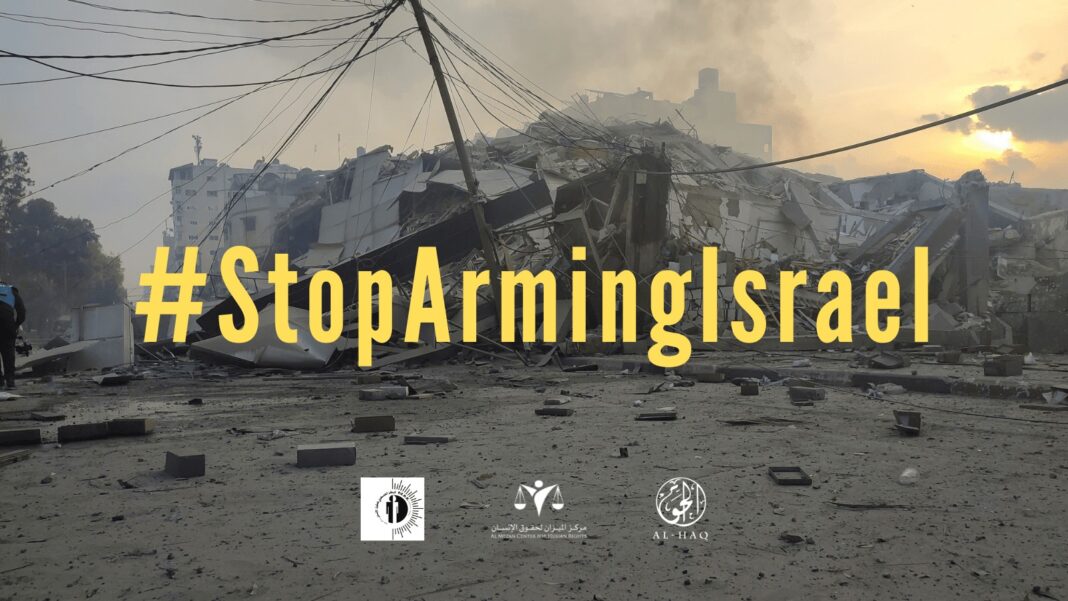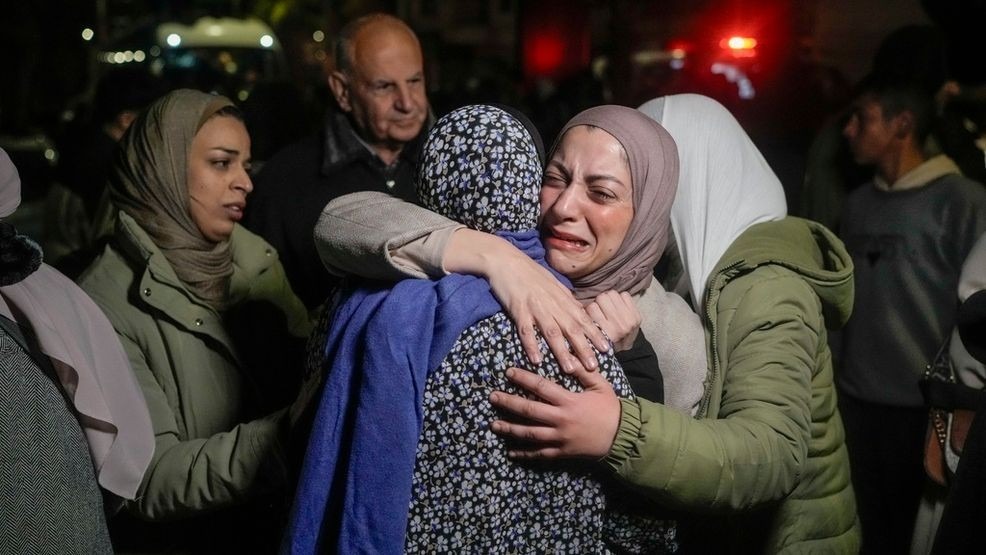The ongoing conflict between Israel and Palestine, marked by decades of violence, geopolitical tension, and international controversy, has been further complicated by the intersection of military supply chains, political maneuvering, and global grassroots activism. At the center of this complex web lies the issue of military embargoes and the international flow of arms to Israel. The debate surrounding these embargoes highlights the interconnectedness of economic, military, and political systems in sustaining the conflict.
The Role of International Arms Suppliers
Israel’s military operations are heavily reliant on a continuous supply of arms from its allies. The United States, as Israel’s primary arms supplier, provides the majority of its warplanes, bombs, and other military equipment. This relationship, supported by extensive financial aid packages, underscores America’s role in enabling Israel’s military capabilities. While Germany and other European nations also contribute, their roles are secondary compared to the United States. Notably, the U.S. has been instrumental in maintaining the steady flow of weapons essential for Israel’s operations in Gaza, Lebanon, Syria, and Yemen.
This massive arms transfer has broader implications. The United States’ direct involvement in supplying weapons ties its foreign policy to Israel’s military actions, drawing criticism from global human rights organizations. Germany, too, has faced scrutiny for providing submarines and other high-tech equipment to Israel, further enabling its military operations. Beyond government-level interactions, private corporations also play a pivotal role in maintaining the arms supply chain, often escaping public accountability.
However, the supply chain for these arms is not without vulnerabilities. Recent grassroots activism and political decisions have begun to create cracks in this system, as evidenced by actions from governments and unions worldwide that have implemented or advocated for military embargoes.
Internal Struggles Within Israeli Society
The internal dynamics of Israeli society play a critical role in the ongoing conflict. Prime Minister Benjamin Netanyahu has consistently framed the conflict as a religious war, pitching Judaism against Islam. This narrative, while false, has been a tool for consolidating power and maintaining a fragile coalition of diverse factions within Israel. However, the deeply ingrained divisions within Israeli society—exacerbated by apartheid policies and internal hierarchies—have created a political and social crisis that threatens the stability of any government.
Netanyahu’s reliance on continued conflict and crisis to maintain power has further deepened these divisions. The religious factions within Israel, particularly the ultra-Orthodox community, often oppose militarism but indirectly support the state’s actions. This creates tension between soldiers on the ground, who bear the brunt of the conflict, and the political elite.
Moreover, the economic and social toll of prolonged warfare has led to increasing disillusionment among Israeli citizens. Families grappling with skyrocketing living costs, a crumbling education system, and a government deeply in debt face a bleak future. Many Israelis, particularly those with high levels of education and technical skills, are choosing to emigrate. This brain drain is creating a long-term economic challenge as Israel loses the very individuals who fuel its technological and military advancements.
Economic Decline and Emigration
Israel’s economy has been significantly impacted by the ongoing conflict. Reports indicate a sharp increase in emigration, particularly among the educated and affluent segments of society. These individuals, who form the backbone of Israel’s high-tech and military industries, are leaving for countries like Greece, Portugal, and Cyprus. Their departure highlights a broader lack of confidence in the country’s future and contributes to a decline in economic growth and innovation.
Adding to this economic strain is the rising cost of living and a government heavily reliant on debt to fund military operations. The government’s budget deficits are growing, with much of the war effort funded through foreign bonds. However, the sustainability of this debt is questionable, as international investors begin to doubt Israel’s economic future.
Despite this, Netanyahu’s administration has proposed ambitious plans to build a domestic military industry to circumvent the effects of international embargoes. Critics argue that such plans are unsustainable and reflect a short historical memory, as similar efforts in the past have proven ineffective. The 1973 Yom Kippur War serves as a stark reminder: domestically produced weapons failed against superior Soviet-supplied arms, forcing Israel to rely on emergency U.S. military aid.
The Growing Momentum of the Military Embargo
The implementation of military embargoes has gained significant traction in recent years. Grassroots organizations, unions, and governments, particularly in the Global South, have taken steps to restrict the flow of arms to Israel. These actions are legally grounded in international law, which obligates states to avoid complicity in war crimes.
Countries like Spain and Greece have played pivotal roles in disrupting the supply chain. For example, Greek port workers have intercepted shipments of ammunition, effectively halting their transit to Israel. Such actions demonstrate the power of collective organizing and the potential for grassroots movements to influence global geopolitics.
In Spain, the government’s acknowledgment of dual-use items, such as jet fuel, as military supplies marks a significant victory for activists. These items are critical for Israel’s air operations, and blocking their transit could severely limit its military capabilities. The BDS National Committee (BNC) has highlighted these developments as key milestones in the broader push for an international military embargo.
The boycott, divestment, and sanctions (BDS) movement has been at the forefront of these efforts. The movement emphasizes the importance of targeting transiting countries, such as Ireland, Belgium, and the Netherlands, which play crucial roles in facilitating arms shipments. Additionally, global shipping giants and smaller logistics companies have faced increasing pressure to cease operations linked to military supplies destined for Israel.
Challenges and Opportunities for Activism
While the fight for a military embargo is far from over, significant progress has been made. Activists have successfully pressured governments and corporations to reconsider their involvement in the arms trade. Notable examples include unions in Sweden voting to impose a two-way military embargo and campaigns in Spain targeting dual-use items like jet fuel.
The impact of these efforts extends beyond the military sphere. The divestment of major companies from Israel, driven by grassroots pressure, has economic and symbolic implications. For instance, the withdrawal of multinational corporations like Carrefour from certain markets underscores the power of consumer activism in shaping corporate behavior. Similarly, boycotts against American brands such as McDonald’s and Coca-Cola highlight the intersection of corporate interests and geopolitics.
The Path Forward
As the ceasefire in Gaza brings temporary relief, the need for sustained pressure remains critical. Activists and organizations must continue to advocate for a military embargo and broader measures to end the conflict. The success of these efforts depends on collective action across unions, academia, religious institutions, and civil society.
The challenges are immense, but the growing momentum of the military embargo offers hope. By targeting the financial and logistical systems that sustain the conflict, the global community has the potential to create meaningful change and move closer to a just and lasting peace in the region.




